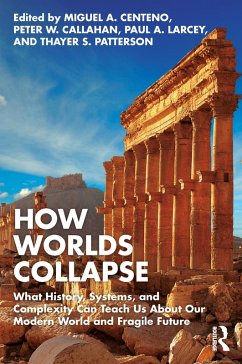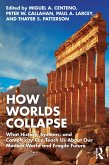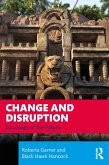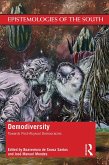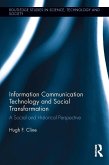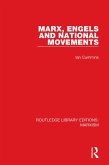How Worlds Collapse (eBook, PDF)
What History, Systems, and Complexity Can Teach Us About Our Modern World and Fragile Future
Redaktion: Centeno, Miguel; Patterson, Thayer; Larcey, Paul; Callahan, Peter
32,95 €
32,95 €
inkl. MwSt.
Sofort per Download lieferbar

16 °P sammeln
32,95 €
Als Download kaufen

32,95 €
inkl. MwSt.
Sofort per Download lieferbar

16 °P sammeln
Jetzt verschenken
Alle Infos zum eBook verschenken
32,95 €
inkl. MwSt.
Sofort per Download lieferbar
Alle Infos zum eBook verschenken

16 °P sammeln
How Worlds Collapse (eBook, PDF)
What History, Systems, and Complexity Can Teach Us About Our Modern World and Fragile Future
Redaktion: Centeno, Miguel; Patterson, Thayer; Larcey, Paul; Callahan, Peter
- Format: PDF
- Merkliste
- Auf die Merkliste
- Bewerten Bewerten
- Teilen
- Produkt teilen
- Produkterinnerung
- Produkterinnerung

Bitte loggen Sie sich zunächst in Ihr Kundenkonto ein oder registrieren Sie sich bei
bücher.de, um das eBook-Abo tolino select nutzen zu können.
Hier können Sie sich einloggen
Hier können Sie sich einloggen
Sie sind bereits eingeloggt. Klicken Sie auf 2. tolino select Abo, um fortzufahren.

Bitte loggen Sie sich zunächst in Ihr Kundenkonto ein oder registrieren Sie sich bei bücher.de, um das eBook-Abo tolino select nutzen zu können.
As our society confronts climate change, authoritarianism, and epidemics, what can examples from the past tell us about our present and future? This book studies societies that either collapsed or overcame cataclysmic adversity, tracing patterns, strategies, and early warning signs that can inform decision making today.
- Geräte: PC
- mit Kopierschutz
- eBook Hilfe
Andere Kunden interessierten sich auch für
![How Worlds Collapse (eBook, ePUB) How Worlds Collapse (eBook, ePUB)]() How Worlds Collapse (eBook, ePUB)32,95 €
How Worlds Collapse (eBook, ePUB)32,95 €![Change and Disruption (eBook, PDF) Change and Disruption (eBook, PDF)]() Roberta GarnerChange and Disruption (eBook, PDF)36,95 €
Roberta GarnerChange and Disruption (eBook, PDF)36,95 €![Demodiversity (eBook, PDF) Demodiversity (eBook, PDF)]() Demodiversity (eBook, PDF)40,95 €
Demodiversity (eBook, PDF)40,95 €![Information Communication Technology and Social Transformation (eBook, PDF) Information Communication Technology and Social Transformation (eBook, PDF)]() Hugh F. ClineInformation Communication Technology and Social Transformation (eBook, PDF)31,95 €
Hugh F. ClineInformation Communication Technology and Social Transformation (eBook, PDF)31,95 €![Polar Expeditions (eBook, PDF) Polar Expeditions (eBook, PDF)]() J. KnottnerusPolar Expeditions (eBook, PDF)35,95 €
J. KnottnerusPolar Expeditions (eBook, PDF)35,95 €![Class Struggle and Identity Politics (eBook, PDF) Class Struggle and Identity Politics (eBook, PDF)]() Marc James LégerClass Struggle and Identity Politics (eBook, PDF)38,95 €
Marc James LégerClass Struggle and Identity Politics (eBook, PDF)38,95 €![Marx, Engels and National Movements (eBook, PDF) Marx, Engels and National Movements (eBook, PDF)]() Ian CumminsMarx, Engels and National Movements (eBook, PDF)38,95 €
Ian CumminsMarx, Engels and National Movements (eBook, PDF)38,95 €-
-
-
As our society confronts climate change, authoritarianism, and epidemics, what can examples from the past tell us about our present and future? This book studies societies that either collapsed or overcame cataclysmic adversity, tracing patterns, strategies, and early warning signs that can inform decision making today.
Dieser Download kann aus rechtlichen Gründen nur mit Rechnungsadresse in A, B, BG, CY, CZ, D, DK, EW, E, FIN, F, GR, HR, H, IRL, I, LT, L, LR, M, NL, PL, P, R, S, SLO, SK ausgeliefert werden.
Produktdetails
- Produktdetails
- Verlag: Taylor & Francis eBooks
- Seitenzahl: 442
- Erscheinungstermin: 30. März 2023
- Englisch
- ISBN-13: 9781000829587
- Artikelnr.: 67443822
- Verlag: Taylor & Francis eBooks
- Seitenzahl: 442
- Erscheinungstermin: 30. März 2023
- Englisch
- ISBN-13: 9781000829587
- Artikelnr.: 67443822
- Herstellerkennzeichnung Die Herstellerinformationen sind derzeit nicht verfügbar.
Miguel A. Centeno is Musgrave Professor of Sociology at Princeton University and Executive Vice Dean of Princeton University's School of Public and International Affairs. He is founder and co-director of the Princeton Institute for International and Regional Studies (PIIRS) Global Systemic Risk research community. Peter W. Callahan is a graduate of Princeton University who earned his MS in Geography and Environmental Studies from the University of New Mexico. He is a researcher at Princeton's PIIRS Global Systemic Risk research community where his scholarly interests include the study of socio-ecological systems, historical systemic risks, sustainable development, and renewable energy policy and technology. Paul A. Larcey is co-director of the PIIRS Global Systemic Risk research community at Princeton University. Larcey's work with the UK's innovation agency focuses on key emerging technologies including life sciences, quantum technologies, and AI. He has worked in corporate research, venture capital, and global industrial sectors at board and senior levels and studied engineering, materials science, and finance at London, Oxford, and Cambridge Universities. Thayer S. Patterson is coordinator and a founding member of the PIIRS Global Systemic Risk research community at Princeton University. Following his studies in economics and mechanical engineering at Yale, and finance at Princeton's Bendheim Center for Finance, his research has focused on the causes and consequences of catastrophic systemic risk.
Introduction
Section 1: Theory and Insights of Historical Collapse
1. Globalization and Fragility: A Systems Approach to Collapse
Miguel A. Centeno, Peter W. Callahan, Paul A. Larcey, and Thayer S. Patterson
2. How Scholars Explain Collapse
Joseph A. Tainter
3. Diminishing Returns on Extraction: How Inequality and Extractive Hierarchy Create Fragility
Luke Kemp
4. Collapse, Recovery, and Existential Risk
Haydn Belfield
Section 2: Historical and Archaeological Investigations of Collapse
5. "Mind the Gap": The 1177 BCE Late Bronze Age Collapse and Some Preliminary Thoughts on Its Immediate Aftermath
Eric H. Cline
6. The End of "Peak Empire": The Collapse of the Roman, Han, and Jin Empires
Walter Scheidel
7. Collapse and Non-collapse: The Case of Byzantium ca. 650-800 CE
John Haldon
8. Fluctuat Nec Mergitur: Seven Centuries of Pueblo Crisis and Resilience
Timothy A. Kohler, R. Kyle Bocinsky, and Darcy Bird
9. Episodes of the Feathered Serpent: Aztec Imperialism and Collapse
Deborah L. Nichols and Ryan H. Collins
10. The Black Death: Collapse, Resilience, and Transformation
Samuel K. Cohn, Jr
11. The Cases of Novgorod and Muscovy: Using Systems Thinking to Understand Historical Civilizational Response to Exogenous Threats
Miriam Pollock, Benjamin D. Trump, and Igor Linkov
12. Resilience of the Simple? Lessons from the Blockade of Leningrad
Jeffrey K. Hass
Section 3: Systemic Collapse Insights from Ecology, Climate, and the Environment
13. Climate Change and Tipping Points in Historical Collapse
Timothy M. Lenton
14. Conservation of Fragility and the Collapse of Social Orders
John M. Anderies and Simon A. Levin
15. Resilience and Collapse in Bee Societies and Communities
Christina M. Grozinger and Harland M. Patch
Section 4: Future Systemic Collapse and Quantitative Modeling
16. Producing Collapse: Nuclear Weapons as Preparation to End Civilization
Zia Mian and Benoît Pelopidas
17. From Wild West to Mad Max: Transition in Civilizations
Richard Bookstaber
18. Phase Transitions and the Theory of Early Warning Indicators for Critical Transitions
George I. Hagstrom and Simon A. Levin
19. The Lifespan of Civilizations: Do Societies "Age," or Is Collapse Just Bad Luck?
Anders Sandberg
20. Multipath Forecasting: The Aftermath of the 2020 American Crisis
Peter Turchin
Section 1: Theory and Insights of Historical Collapse
1. Globalization and Fragility: A Systems Approach to Collapse
Miguel A. Centeno, Peter W. Callahan, Paul A. Larcey, and Thayer S. Patterson
2. How Scholars Explain Collapse
Joseph A. Tainter
3. Diminishing Returns on Extraction: How Inequality and Extractive Hierarchy Create Fragility
Luke Kemp
4. Collapse, Recovery, and Existential Risk
Haydn Belfield
Section 2: Historical and Archaeological Investigations of Collapse
5. "Mind the Gap": The 1177 BCE Late Bronze Age Collapse and Some Preliminary Thoughts on Its Immediate Aftermath
Eric H. Cline
6. The End of "Peak Empire": The Collapse of the Roman, Han, and Jin Empires
Walter Scheidel
7. Collapse and Non-collapse: The Case of Byzantium ca. 650-800 CE
John Haldon
8. Fluctuat Nec Mergitur: Seven Centuries of Pueblo Crisis and Resilience
Timothy A. Kohler, R. Kyle Bocinsky, and Darcy Bird
9. Episodes of the Feathered Serpent: Aztec Imperialism and Collapse
Deborah L. Nichols and Ryan H. Collins
10. The Black Death: Collapse, Resilience, and Transformation
Samuel K. Cohn, Jr
11. The Cases of Novgorod and Muscovy: Using Systems Thinking to Understand Historical Civilizational Response to Exogenous Threats
Miriam Pollock, Benjamin D. Trump, and Igor Linkov
12. Resilience of the Simple? Lessons from the Blockade of Leningrad
Jeffrey K. Hass
Section 3: Systemic Collapse Insights from Ecology, Climate, and the Environment
13. Climate Change and Tipping Points in Historical Collapse
Timothy M. Lenton
14. Conservation of Fragility and the Collapse of Social Orders
John M. Anderies and Simon A. Levin
15. Resilience and Collapse in Bee Societies and Communities
Christina M. Grozinger and Harland M. Patch
Section 4: Future Systemic Collapse and Quantitative Modeling
16. Producing Collapse: Nuclear Weapons as Preparation to End Civilization
Zia Mian and Benoît Pelopidas
17. From Wild West to Mad Max: Transition in Civilizations
Richard Bookstaber
18. Phase Transitions and the Theory of Early Warning Indicators for Critical Transitions
George I. Hagstrom and Simon A. Levin
19. The Lifespan of Civilizations: Do Societies "Age," or Is Collapse Just Bad Luck?
Anders Sandberg
20. Multipath Forecasting: The Aftermath of the 2020 American Crisis
Peter Turchin
Introduction
Section 1: Theory and Insights of Historical Collapse
1. Globalization and Fragility: A Systems Approach to Collapse
Miguel A. Centeno, Peter W. Callahan, Paul A. Larcey, and Thayer S. Patterson
2. How Scholars Explain Collapse
Joseph A. Tainter
3. Diminishing Returns on Extraction: How Inequality and Extractive Hierarchy Create Fragility
Luke Kemp
4. Collapse, Recovery, and Existential Risk
Haydn Belfield
Section 2: Historical and Archaeological Investigations of Collapse
5. "Mind the Gap": The 1177 BCE Late Bronze Age Collapse and Some Preliminary Thoughts on Its Immediate Aftermath
Eric H. Cline
6. The End of "Peak Empire": The Collapse of the Roman, Han, and Jin Empires
Walter Scheidel
7. Collapse and Non-collapse: The Case of Byzantium ca. 650-800 CE
John Haldon
8. Fluctuat Nec Mergitur: Seven Centuries of Pueblo Crisis and Resilience
Timothy A. Kohler, R. Kyle Bocinsky, and Darcy Bird
9. Episodes of the Feathered Serpent: Aztec Imperialism and Collapse
Deborah L. Nichols and Ryan H. Collins
10. The Black Death: Collapse, Resilience, and Transformation
Samuel K. Cohn, Jr
11. The Cases of Novgorod and Muscovy: Using Systems Thinking to Understand Historical Civilizational Response to Exogenous Threats
Miriam Pollock, Benjamin D. Trump, and Igor Linkov
12. Resilience of the Simple? Lessons from the Blockade of Leningrad
Jeffrey K. Hass
Section 3: Systemic Collapse Insights from Ecology, Climate, and the Environment
13. Climate Change and Tipping Points in Historical Collapse
Timothy M. Lenton
14. Conservation of Fragility and the Collapse of Social Orders
John M. Anderies and Simon A. Levin
15. Resilience and Collapse in Bee Societies and Communities
Christina M. Grozinger and Harland M. Patch
Section 4: Future Systemic Collapse and Quantitative Modeling
16. Producing Collapse: Nuclear Weapons as Preparation to End Civilization
Zia Mian and Benoît Pelopidas
17. From Wild West to Mad Max: Transition in Civilizations
Richard Bookstaber
18. Phase Transitions and the Theory of Early Warning Indicators for Critical Transitions
George I. Hagstrom and Simon A. Levin
19. The Lifespan of Civilizations: Do Societies "Age," or Is Collapse Just Bad Luck?
Anders Sandberg
20. Multipath Forecasting: The Aftermath of the 2020 American Crisis
Peter Turchin
Section 1: Theory and Insights of Historical Collapse
1. Globalization and Fragility: A Systems Approach to Collapse
Miguel A. Centeno, Peter W. Callahan, Paul A. Larcey, and Thayer S. Patterson
2. How Scholars Explain Collapse
Joseph A. Tainter
3. Diminishing Returns on Extraction: How Inequality and Extractive Hierarchy Create Fragility
Luke Kemp
4. Collapse, Recovery, and Existential Risk
Haydn Belfield
Section 2: Historical and Archaeological Investigations of Collapse
5. "Mind the Gap": The 1177 BCE Late Bronze Age Collapse and Some Preliminary Thoughts on Its Immediate Aftermath
Eric H. Cline
6. The End of "Peak Empire": The Collapse of the Roman, Han, and Jin Empires
Walter Scheidel
7. Collapse and Non-collapse: The Case of Byzantium ca. 650-800 CE
John Haldon
8. Fluctuat Nec Mergitur: Seven Centuries of Pueblo Crisis and Resilience
Timothy A. Kohler, R. Kyle Bocinsky, and Darcy Bird
9. Episodes of the Feathered Serpent: Aztec Imperialism and Collapse
Deborah L. Nichols and Ryan H. Collins
10. The Black Death: Collapse, Resilience, and Transformation
Samuel K. Cohn, Jr
11. The Cases of Novgorod and Muscovy: Using Systems Thinking to Understand Historical Civilizational Response to Exogenous Threats
Miriam Pollock, Benjamin D. Trump, and Igor Linkov
12. Resilience of the Simple? Lessons from the Blockade of Leningrad
Jeffrey K. Hass
Section 3: Systemic Collapse Insights from Ecology, Climate, and the Environment
13. Climate Change and Tipping Points in Historical Collapse
Timothy M. Lenton
14. Conservation of Fragility and the Collapse of Social Orders
John M. Anderies and Simon A. Levin
15. Resilience and Collapse in Bee Societies and Communities
Christina M. Grozinger and Harland M. Patch
Section 4: Future Systemic Collapse and Quantitative Modeling
16. Producing Collapse: Nuclear Weapons as Preparation to End Civilization
Zia Mian and Benoît Pelopidas
17. From Wild West to Mad Max: Transition in Civilizations
Richard Bookstaber
18. Phase Transitions and the Theory of Early Warning Indicators for Critical Transitions
George I. Hagstrom and Simon A. Levin
19. The Lifespan of Civilizations: Do Societies "Age," or Is Collapse Just Bad Luck?
Anders Sandberg
20. Multipath Forecasting: The Aftermath of the 2020 American Crisis
Peter Turchin
